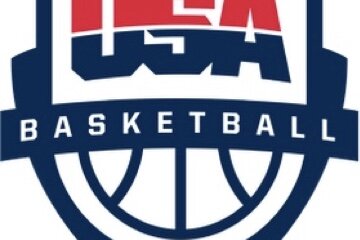
UPDATE
Kansas State has reversed last weeks “final” and “binding” decision and have granted Leticia Romero a full release excluding only fellow Big 12 institutions. Romero has previously stated that she will also not be following the former Kansas State staff to Northern Colorado. The decision came by way of a revised policy on transfers which essentially puts the decision in the hands of the athletic director and should eliminate embarrassing and unfair situations to arise in the future. It also is hard to imagine that the long term impact on recruiting wasn’t taken into consideration as Romero’s situation escalated and the policy was reevaluated.
That new policy reads:
“A student-athlete who seeks a transfer from Kansas State University to another institution for the purpose of continuing athletic participation at that institution must receive a release from the Director of Athletics prior to any contact with athletics representatives of other institutions (NCAA Bylaw 13.1.1.3). A student-athlete may seek a release by submitting a written request to the Athletic Compliance Office. This request will be reviewed by the Head Coach and Sport Administrator of the student-athlete’s sport.
“The student-athlete’s grade point average as it relates to APR, undue burden or personal/family hardship on the student-athlete, conduct and honest communication by the student-athlete, the best interests of the student-athlete and the institution, and indications of tampering or undue influence regarding the student-athlete shall be the factors considered in the decision as to whether to provide a release for the purposes of a transfer or the provision of the one-time transfer exception (NCAA Bylaw 14.5.5.2.10).
“If a student-athlete’s request for transfer is denied, the student will be notified in writing of his/her right to appeal (NCAA Bylaw 14.5.5.2.10.1) and the steps necessary to request the hearing. The hearing will take place in front of an Appeals Committee to be assembled by the Vice President of Student Life and comprised of individuals from the institution’s main campus and outside of athletics.”
Romero’s situation may have been resolved but it doesn’t change the inequity in the ability of coaches to change schools while athletes are beholden to the whims of self serving athletic departments. I may not see them as employees per say but they’re not property either. We did away with that a long time ago.
The point of the column still stands and is worth plenty of conversation between families and the recruits they’re looking to “lock up” (Pun most certainly intended!)
It’s a sad day when you feel an obligation to apologize for your profession. While I may make a living behind a keyboard and a camera these days, I spent 25 years as a Division I recruiting coordinator and will probably always lay claim to the mantle of “coach” even when they’re debating what to engrave on my tombstone.
For the most part, I always felt a great deal of pride that I was part of women’s basketball and intercollegiate athletics. I have and still do defend the NCAA in the bigger picture. Of course there are flaws in the system as there are with any entity trying to address an ever changing landscape. However, the constantly overlooked element of the NCAA is the positive characteristics which it has in common with the U.S. Constitution. The fact that it has the ability to recognize mistakes in or the evolution of its own environment while maintaining the capacity to make necessary changes reveals that it’s not quite the stagnant, self-serving cartel that it’s often portrayed as these days.
That being said, a tremendous apology is still due many athletes for the failure on the part of NCAA legislative efforts, closed minded administrators and ethically challenged coaches. That apology is for the enormous hypocrisy that surrounds coaching changes and the impact of those changes on individuals already on a program’s roster.
When an athlete signs with a National Letter of Intent and a Financial Aid Agreement (scholarship) they are reminded time and again that they are signing with a school, not a coach. A noble thought, but in reality a delusional mentality supported only by those who haven’t the slightest clue about real world recruiting. I’m not sure how many athletes have signed NLI’s with programs whose coaches they weren’t completely enamored with but I’m confidently guessing it’s a miniscule percentage of the signees in any sport each year.
The NCAA and its schools want and dictate an undying loyalty to their institutions but aren’t willing to extend the same courtesy in return. We’ve got a couple of shameful examples of the aforementioned “one way street” this year that are nothing less than an embarrassment to the universities and individuals involved. Examples like these are the very things that the critics, media, and the bitterly disenfranchised will point out as college athletics run amuck. In this case they would be right.
Leticia Romero of Kansas State and Schenia Battle of Alabama-Birmingham have very little in common. Romero, a freshman from the Canary Islands this past season and Battle, a 2013 – 14 sophomore for from Calumet City, Illinois, had very different productivity levels on the floor. For the Wildcats Romero led the way in both points and minutes during her rookie campaign in Manhattan while Battle saw just 77 total minutes of action in 14 of the Blazers 31 total games. However, what they do have in common is that they both are having their careers impacted by coaching changes. UAB saw Audra Smith depart for the ACC and Clemson after Battle’s freshman season and the powers that be at KSU issued walking papers to long time head coach Deb Patterson after their final game this past March.
Here’s where things get interesting. Romero had requested and has been denied a release by Kansas State. New coach Jeff Mittie took over but Romero’s request still stood…and is still being denied. Battle, after a season under first year head coach Randy Norton, is having her scholarship pulled solely on a performance basis. Both have appealed as is permitted under NCAA guidelines and both were denied. Not exactly a rousing endorsement for either program’s “commitment to the student athlete”.
In an interesting twist for Romero the athletic director this week asked the appeal committee to overturn their denial of her release request. But Kansas State vice president Jeffrey Morris maintained in a statement late Wednesday that the appeals committee’s ruling is “final and binding, and there is no university procedure to re-examine one of those decisions. Never mind that had the athletic department granted the release in the first place the appeal committee would have never had the chance to show their true colors on a national stage. Romero told ESPN’s Mechelle Voepel that she has now received a limited release…just not to any of the 100 schools she had chosen as possibilities. She has also made it clear that she’s not following the former staff to their new setting at the University of Northern Colorado. The baffling decision begs for an answer to the question of “Why do they care?” in terms of where she goes.
In Romero’s case plenty of insinuation seemed to be floating around that her indentured servitude has been based on allegations of tampering by other coaches. That’s fine, but in that case, KSU’s issue lies with those coaches or schools rather than a young lady with limited options and resources who’s been in the country less than a year. Romero has denied any illicit activity. The university has conveniently sited privacy issues on Romero’s behalf in not commenting publically. Yet now, after the ongoing firestorm, they’re offering that KSU policy states that “except for the most compelling of circumstances, which place an undue burden on the student athlete, it is the policy of the department of intercollegiate athletics not to grant a release for the purposes of a transfer or provide the one-time transfer exception.” Where was that two months ago?
Regardless of whether or not opposing coaches have crossed some lines, the failure to grant a release in this scenario is a red flag statement about the regard in which university and its representatives hold the needs and desires of its student – athletes. It also compels the logically thinking individual to wonder if the same denial of a release would be the KSU course of action if Romero was a significantly less integral part of the returning roster.
Battle doesn’t have the benefit of a media frenzy surrounding her as does her counterpart at Kansas State and without the leverage of quality play and statistical support, is taking a backseat to the perceived needs of the new regime in Birmingham. It’s a sad day when someone in this profession believes that just because they “can” do something that they’re ethically entitled to do so. Going one step further, the whole scenario has been handled worse than the roll out of Obamacare.
Let’s start with the fact that the young lady wasn’t informed of the decision not to renew her scholarship until a month after the season was over. That’s valuable time wasted that may have been critical in her finding another opportunity of her choosing. I emphasize “of her choosing” because the staff graciously found a D-II opportunity for her at a school she had never visited nor had any communication with it’s coaches at that point in time. Never mind that no conversation took place with the athlete herself about what she might want or where she might be interested in as an alternative for her future. Essentially, it’s the equivalent of a husband or wife asking for a divorce and trying to soften the blow (or ease their guilt) by setting up a blind date for their soon to be Ex the following Friday night. Additionally, I’m sure it’s just a coincidence that the Athletic Director at that D-II school is the father of a UAB manager.
Let’s revisit to the timing of her being told her services were no longer needed in Blazerland. In a real classy move, she was informed the day after their post season banquet just hours after her family had left town. Guess the idea that she might need someone in her corner during a difficult meeting or even just a shoulder to cry on never crossed anyone’s mind. And let’s address the compassionate consideration of the timing once more by acknowledging that Battle spent that month from the end of the season until Norton pulled the trigger on her UAB career participating in mandatory post season workouts. Nice to know they were willing to risk an ACL, concussion etc. that might have further limited her options on the transfer open market.
As with Romero, Battle’s appeal of Norton’s decision was denied. The NCAA affords an athlete in such situations a hearing with an on campus committee outside of the athletic department to ensure an unbiased appeal. It’s a safe bet that Battle’s hope for objectivity went out the door when they began talking about the D-II transfer option seemingly indicating that they weren’t really addressing what her appeal was actually about. Their ultimate denial is a statement to current and future prospects of the program that the staff will pull your aid if you don’t live up to expectations and furthermore the university supports and endorses such decisions. Wonder if that philosophical tidbit will be shared with recruits and their parents when an offer is put on the table?
Romero has options. They entail her transferring at her own expense for a year to the school of her choice, choosing one of the lesser caliber programs she claims KSU has now so generously released her to or possibly taking a detour down the junior college highway and sacrificing one of her three remaining years of eligibility to get the tab for her education picked up. And of course she could stay at Kansas State with their warm embrace and the respectful regard in which they obviously hold her personal preferences. In marriages when someone wants out and their spouse won’t let them go it’s often referred to as an abusive relationship. An NLI isn’t “till death do us part” but there’s no nobility in holding onto someone who doesn’t love you anymore. Who knows, had she been given a release right out of the gate she might have ended up back in a Wildcat uniform after checking out her options elsewhere. Chances are if she’s wearing purple after this drama plays out it will be with considerably less pride than she did last season.
Battle’s possibilities are much more limited. She offered to walk away from the game if UAB would uphold the promise they made to see her get a degree during the recruiting process. Seems that’s not an option. With two seasons under her belt, Battle doesn’t have a JC option as Romero does and her limited court time doesn’t have coaches lining up at the door waving scholarship offers. If you did the roster math of returning players (including Battle) and fall signees you come up with the NCAA limit of 15 scholarships. I guess it’s just another coincidence that an incoming transfer was announced shortly after Battle was stripped of her scholarship. Those don’t happen overnight, particularly when the current head coach wasn’t in place when said transfer signed her NLI out of high school. I’ll bet that transfer must feel good about her opportunity knowing the rug may have been pulled out from under another athlete to facilitate her move. I’m just thinking the end of the UAB bench must get incredibly nervous every time their coaches hit the recruiting trail.
In the bigger picture this isn’t about Kansas State, Alabama-Birmingham or the people callously manipulating the lives of these two young women. It’s about the NCAA stepping up and holding schools accountable to their athletes. If a coaching change occurs, then the rights and prerogative of the athletes have to change, too.
It’s time to do away with the asinine notion that a recruit signs with a school not a coach, particularly if the school is going to allow the new staff to clean house. Even though scholarships have been renewable on a year to year basis nobody sits in a prospect’s living room enticing them with the attractive threat that “we’ll take your scholarship if you don’t perform as we hope and anticipate that you will”. While a new coach may not have recruited the roster that they inherit they do assume responsibility for the commitments made on behalf of the university by their predecessor. At the very least the school should uphold those obligations even if their new staff is putting their own agenda ahead of the athletes that were there before them. A four year scholarship isn’t the answer but much stiffer, non-performance based criteria for taking a player’s aid need to be in place for the peace of mind of athletes and their families.
For returning players, coaching changes should automatically come with a release, if requested, once the individual has met with the new staff or by a specified date if a school drags its feet in the hiring process. Athletes DO chose schools on the basis of who the coach is as evidenced by athletic departments spending a lot of time seeking and hiring coaches who recruits want to play for. It’s absurd to hold someone hostage if the most influential on campus people in their lives are no longer are part of the equation. While I vehemently oppose the concept of athletes unionizing, Romero’s situation reeks of restraint of trade. If Kansas State has issues with another university or coach they should deal with that matter of contention separately and appropriately with the Big 12 and the NCAA. It’s cheap and petty to limit Leticia Romero’s academic and athletic choices. Any rationalization of that decision is a transparent and shallow effort to keep a big time player on campus.
Sadly these situations are far from the only ones that exemplify the manipulative authority of universities and the NCAA when a coaching change occurs. The outcry over Romero’s situation has brought attention to the absolute lack of control that an individual has over her career once she signs a National Letter of Intent. Without an aggressive effort to provide athletes protection, relief and freedom when a new staff takes the helm there will be plenty more just like Romero and Battle who will feel trapped or victimized by a system they originally bought into as an opportunity…rather than a sentence.
Mark Lewis is a national evaluator and photographer for Blue Star Basketball as well as the lead columnist for Blue Star Media. Twice ranked as one of the top 25 Division I assistant coaches in the game by the Women's Basketball Coaches Association (WBCA), he logged 25 years of college coaching experience at Memphis State, Cincinnati, Arizona State, Western Kentucky and Washington State. Lewis serves as a member of the prestigious McDonald’s All-American selection committee as well as the Naismith College Player and Coach of the Year committees.

Latest Articles
-


Christopher Lawlor
/ 2 days agoSTARS SHINE: Bailey, Costello earn Co-MVPs at 23rd Pangos All-American Camp in Las Vegas; three Santa Margarita (CA) players recognized
LAS VEGAS – The Pangos All-American Camp did not disappoint. For three days the...
-


Christopher Lawlor
/ 4 days ago23rd Pangos All-American Camp tips off in Las Vegas with nation’s elite players congregating for national showcase event
LAS VEGAS – The summer circuit is nearly two months old but it really...
-


Christopher Lawlor
/ 1 week agoU16 USA Women’s Basketball National Team roster selected for 2025 FIBA AmeriCup in Mexico from June 16-22
COLORADO SPRINGS, Colo. — USA Basketball announced today the 2025 USA Women’s U16 National...
-
Christopher Lawlor
/ 1 week agoU16 USA Men’s Basketball National Team roster chosen for 2025 FIBA AmeriCup next week in Juarez, Mexico
COLORADO SPRINGS, Colo. – The team is set and now for the games South...




